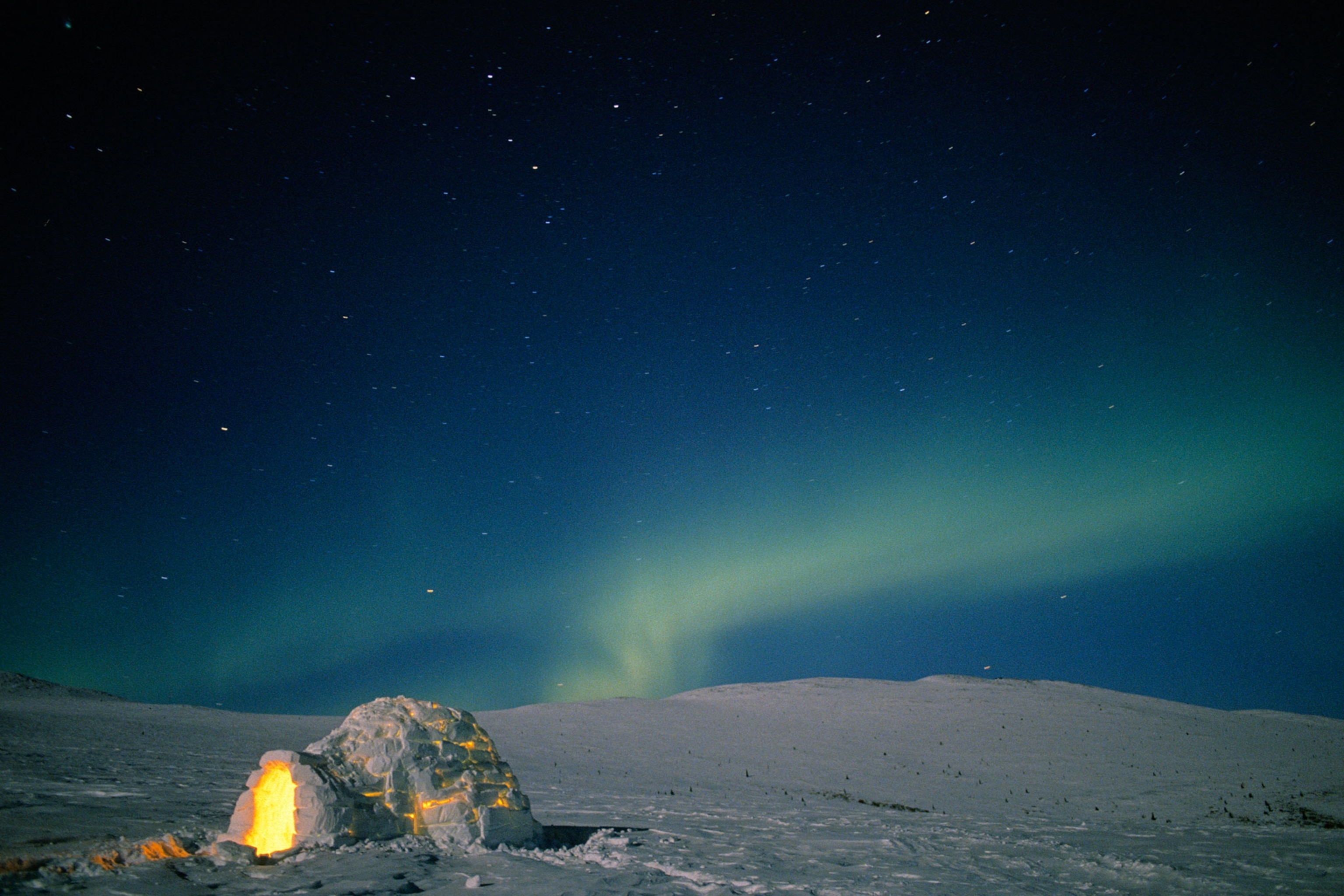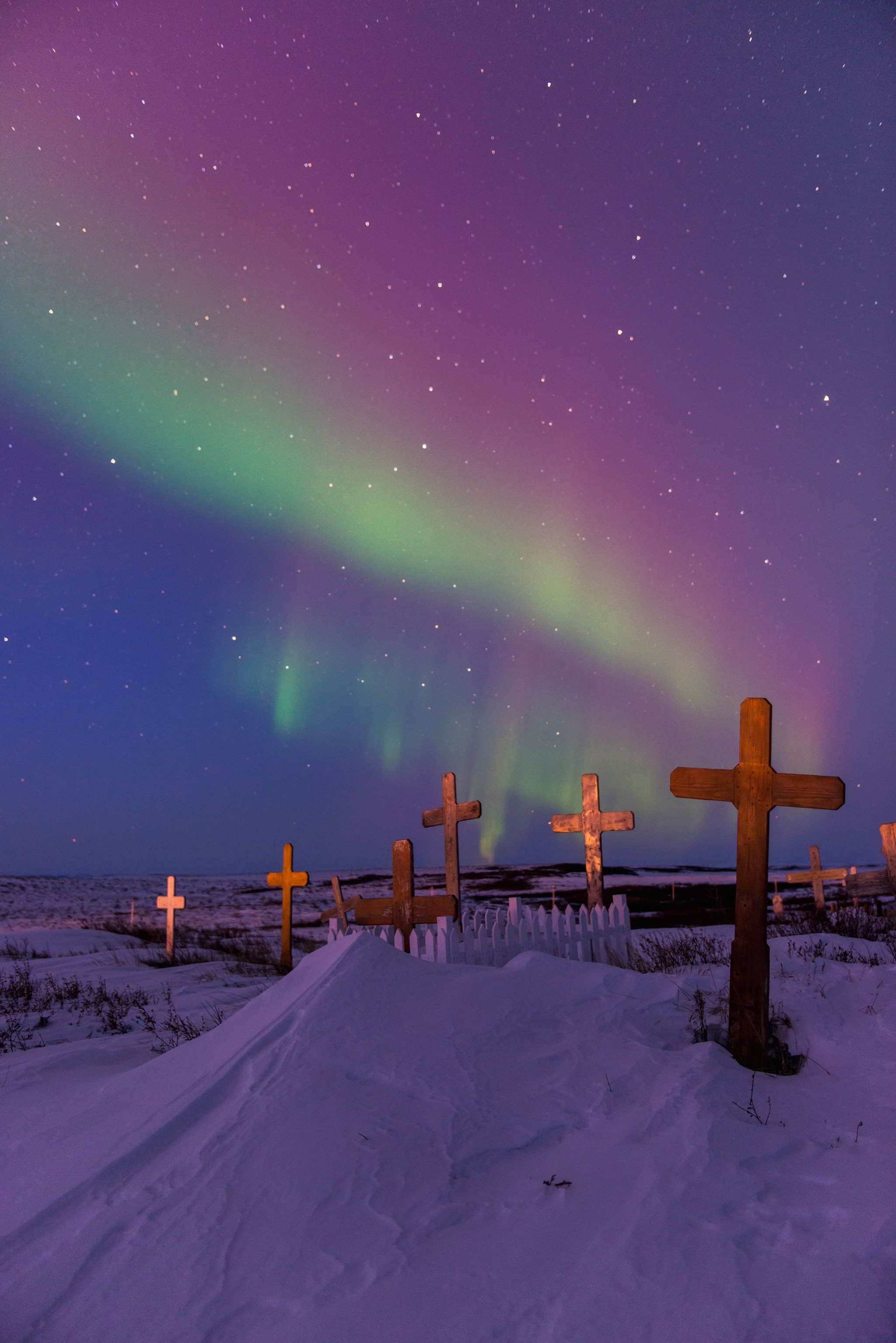
Auroras Make Weird Noises, and Now We Know Why
A new theory offers what may be the best explanation yet for hisses and pops heard during powerful light displays.
Arctic wilderness tales often wax poetic about dazzling displays of northern lights painting the skies. But for at least the past century, some of those stories have also mentioned eerie noises associated with especially powerful auroras.
Witnesses say the sounds are comparable to radio static, like a faint crackling, light rustling, or hissing heard for a few minutes during a strong display. While the weird sounds were long considered folklore, Finnish scientists have not only shown that they really happen, but now the team thinks they know why.
The answer can be traced to charged particles trapped in a layer of the atmosphere that forms during cold nights. These particles rapidly discharge when bursts of material from the sun slam into Earth, producing clapping sounds and other noises, the team reported on June 22 at the Baltic-Nordic Acoustic Meeting in Stockholm, Sweden.
Cracking Good Show
Charged particles are constantly streaming from the sun in the solar wind, and auroras occur when these particles interact with Earth's magnetic field. The particles are funneled toward the poles, where they slam into the atmosphere and set off colorful light shows.
Sometimes, the sun flings off major bursts of particles that, when aimed at Earth, can set off disturbances in the planet’s magnetic field known as geomagnetic storms. These storms can interfere with orbiting satellites and even the electrical grid, but they also produce the most dramatic auroral displays.
Previously, one of the leading theories for aurora noise suggested that tree needles or pine cones may be involved. During geomagnetic storms, the atmosphere can hold abnormally high electric fields, creating a difference in charge between the air and objects on the ground.
Anything pointy, like leaves and pine cones, would offer the perfect surface for electricity to discharge, like a static shock jumping from a doorknob to your finger, and that might set off an audible cracking sound.
But back in 2012, Aalto University researcher Unto K. Laine was able to prove that auroral sounds were emanating from above the treetops—230 feet (70 meters) above Earth’s surface—during the times of the most intense displays.
Now, his team’s follow-up study proposes a specific explanation for the auroral snap, crackle, and pop. The key is something called an inversion layer, a region of the atmosphere where the air temperature increases with altitude instead of experiencing the usual decrease. Such layers can develop after calm, sunny days, says Laine. After sunset, warmer air rises while the surface cools, and continuing calm conditions mean the two temperature regions don't mix.
According to Laine and his team, this inversion layer then acts like a lid, trapping negative electrical charge in the region below it and positive charge in the air above. When a geomagnetic storm hits Earth, the lid breaks and the charge is released, creating the weird sounds.
This theory matches nicely with the team’s previous observations. They showed that 60 of the loudest recorded sounds originated about 250 feet (75 meters) above the ground. That’s the same altitude as a typical inversion layer, according to independent measurements conducted by the Finnish Meteorological Institute.
"Auroral sound is a phenomenon that is dismissed by many people, scientists and otherwise, as originating in the imagination of the observer," says Dirk Lummerzheim, an aurora researcher at the University of Alaska, Fairbanks.
"I think this is the first time that the sounds are not only observed to actually be an acoustic signal—as opposed to something that is manufactured in the human brain, for example, similar to synesthesia—but Doctor Laine also has proposed a physical process that provides a good explanation."
How to See, and Hear, Auroras
To catch elusive aurora displays and maybe even hear their strange sounds, it’s best to be near or around the Arctic Circle, although powerful solar storms can spark auroras in much more temperate latitudes, too.
Take a look outside around local midnight, facing the northern horizon from as dark a location as possible. Light pollution really filters out the weaker northern lights, so from city suburbs we probably catch only the stronger displays.
The show usually starts with a faint greenish ribbon glowing across the northern horizon. Then, if there is a storm of particles, you could see ribbons and curtains of colors dance over much of the sky.
There are no guarantees that you will see auroras on any clear night, but there is a way to hedge your bets, such as signing up for email alerts from Spaceweather.com, which tracks the solar activity and outbursts that create these amazing sights.
Andrew Fazekas, the Night Sky Guy, is the author of Star Trek: The Official Guide to Our Universe. Follow him on Twitter, Facebook, and his website.





